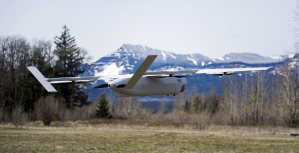House lawmakers propose the stand-up of a Defense Innovation Unit office in Israel

Tucked into the annual defense policy bill for fiscal 2026 passed by House lawmakers last week is a proposal that would require the Pentagon to set up a new Defense Innovation Unit office on the ground in Israel.
That amendment, put forward by combat veteran Rep. Zach Nunn (R-IA), seeks to spark the launch of the Defense Department’s first DIU hub to be based outside of the U.S. — “at a location within the territory of Israel” — within roughly six months of the National Defense Authorization Act’s enactment.
Pentagon leaders established DIU in 2015, with initial aims to help its components and the military team with America’s commercial sector and adopt cutting-edge tech at a faster and less costly rate than traditional government buying methods allowed at the time.
The innovation organization’s priorities shifted over the years as it matured. Under its last permanent chief, former Apple executive Doug Beck, the DIU team was focusing on scaling efforts to help close the military’s most crucial tech capability gaps and support contemporary operations.
The Trump administration’s Pentagon CTO Emil Michael took over as acting DIU director in August, following Beck’s resignation. Since then, he and other department leaders have shared few details publicly about their near- or long-term plans for the unit. Department spokespersons have not responded in recent weeks to multiple requests from DefenseScoop for more information about the vision for DIU’s future, and questions linger about some of its major initiatives.
Over the last few years, DIU stood up five Defense Innovation OnRamp Hubs around the U.S. to serve as an off-base, easily accessible “front door” for new people, ideas and technologies to connect with the military. DIU also has a few other offices located strategically around the nation, as well as ambassadors that help its broader regional outreach pursuits.
Around 2023, the unit started deploying military embeds with certain U.S. combatant commands to work side-by-side with warfighters in their real-world operational environments, and ultimately advise them on technologies in the department’s arsenal that can support their work. However, DIU does not operate hubs or physical offices in any nations besides the United States, to date.
If it makes it into the final version of the NDAA, Nunn’s provision would mandate the Pentagon to create a DIU office in Israel to engage the country’s Ministry of Defense “and representatives of the private sector in collaborative efforts to counter developments by Iran, China, and other adversaries of dual-use defense technologies.”
According to the amendment’s text, other functions of that office would include identifying “Israeli innovations and technological competitive advantages that can be incorporated and integrated” into the U.S. defense industrial base, leveraging resources across both countries to benefit their shared national security interests, and other efforts that the DIU director “considers appropriate.”
A press release from Nunn’s office stated that the provision aims to enhance “battlefield readiness and [ensure] U.S. and Israeli forces stay ahead of emerging threats in a volatile region.” His proposal comes as the war Israel has been waging in Palestine against the militant group Hamas intensifies, and a humanitarian crisis continues to worsen across the Gaza Strip.
The Senate is expected to soon pass its version of the fiscal 2026 NDAA. From there, both chambers will reconcile their respective bills and vote on a final, compromise legislation.






